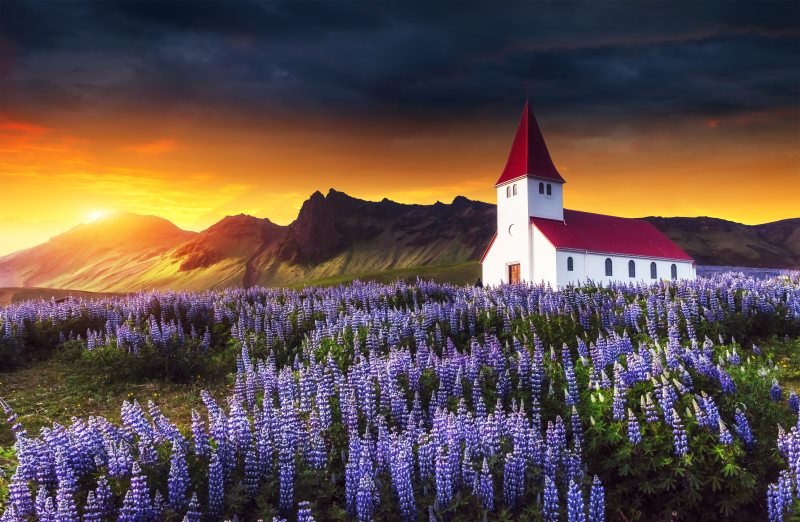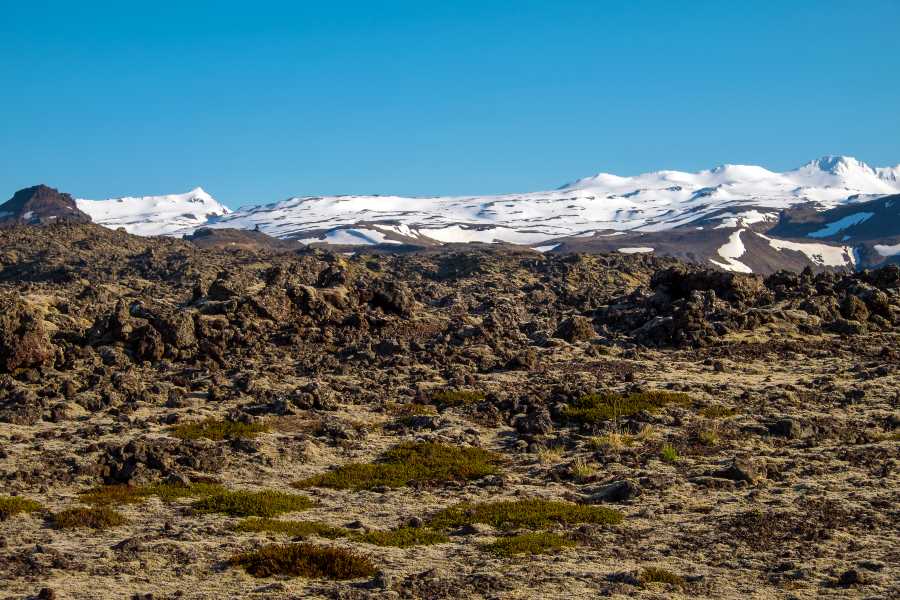
Premium Starting ₹395

24x7 Missed Call Facility


Premium Starting ₹395

24x7 Missed Call Facility



The best time to visit Iceland is during the summer months of July and August. Iceland, the land of fire, ice, and the Midnight Sun offers unparalleled biodiversity while boasting an extremely low population density. Iceland is a land of contrasting landscapes with numerous hot springs and long treks to nearby mountain ranges.
However, Iceland’s winters are ruthless and generally span from September to April. The continuous snowfall during the winter months makes travelling across the country next to impossible.


Different seasons come with different opportunities, so determining the best season to visit becomes a mind-boggling task. The list given below will help you determine the best time to visit Iceland:
| Month | Average Temperature | Description |
| April to May (Spring Season) | 1 to 7 degrees Celsius | Springtime in Iceland is marked by melting snow, budding flora, and milder weather. Ideal for budget travellers, with fewer crowds and cheaper accommodations. Popular events during this time: First Day of Summer (Sumardagurinn fyrsti) (late April) and Reykjavík Arts Festival (May). |
| June to August (Summer Season) | 10 to 15 degrees Celsius | The warmest season with long daylight hours, including the Midnight Sun. Perfect for outdoor activities such as hiking, whale watching, and exploring highlands. Popular events during this time: Secret Solstice Festival (June) and Reykjavík Pride (August). |
| September to October (Autumn Season) | 4 to 10 degrees Celsius | Autumn brings cooler weather and vibrant foliage. It is an excellent time for fewer crowds, Northern Lights viewing starts, and the weather is still relatively mild. Popular events during this time: Reykjavík International Film Festival (September) and Iceland Airwaves (October/November). |
| November to March (Winter Season) | -1 to 3 degrees Celsius | Cold and snowy, with short daylight hours. Best for experiencing the Northern Lights, ice caves, and winter sports. Popular events during this time: Winter Lights Festival (February), Christmas and New Year Celebrations (December), and Þorrablót (January/February). |
Spring in Iceland sees a gentle awakening of nature with longer daylight hours and a mix of melting snow and emerging greenery. This is an excellent time for budget travellers seeking fewer crowds and more affordable prices.
Here are some of the key details you should know about this season when planning for a trip to Iceland:
| Weather | Mild with occasional rain and cold spells |
| Temperature | 1°C to 7°C |
| Season | Moderate |
| Season for Localities | First Day of Summer (Sumardagurinn fyrsti), Reykjavík Children's Culture Festival, Seafarer’s Day (early June) |
| Key Highlights |
|
Summer in Iceland features the Midnight Sun, providing almost 24 hours of daylight, making it perfect for exploring the island’s extensive natural beauty. This is the peak tourist season, with ideal weather for outdoor activities.
Here are some of the key details you should know about this season when planning for a trip to Iceland:
| Weather | Warmest with long days and frequent sunshine |
| Temperature | 10°C to 15°C |
| Season | Peak |
| Season for Localities | Secret Solstice Festival (June), Reykjavík Pride (August) |
| Key Highlights |
|
Autumn brings cooler temperatures and stunning fall colours. It's a quieter time for travel, with fewer tourists, and marks the start of the Northern Lights season as the nights grow longer.
Here are some of the key details you should know about this season when planning for a trip to Iceland:
| Weather | Cool with a mix of sunny and rainy days |
| Temperature | 4°C to 10°C |
| Season | Moderate |
| Season for Localities | Reykjavík International Film Festival (September), Iceland Airwaves (October/November), Réttir (autumn sheep round-up) |
| Key Highlights |
|
Winter in Iceland is characterised by cold, snowy weather and short daylight hours, creating a perfect setting for viewing the Northern Lights and exploring ice caves.
Here are some of the key details you should know about this season when planning for a trip to Iceland:
| Weather | Cold and snowy with long nights |
| Temperature | -1°C to 3°C |
| Season | Off |
| Season for Localities | Winter Lights Festival (February), Christmas and New Year Celebrations (December), Þorrablót (January/February) |
| Key Highlights |
|

Although you can travel to Iceland at any time of the year, it is crucial to avoid the following months:
| Months to Avoid | Reason |
| November to March (Winter Season) |
|
Travelling to Iceland from India can vary significantly in cost depending on the season. Here’s a breakdown of average travel costs for each season:
| Season | Average Flight Cost | Average Hotel Cost per Night | Description |
| Spring (April-May) | ₹50,000 to ₹75,000 | ₹12,000 to ₹18,000 | Spring offers moderate travel costs with fewer crowds and milder weather, making it a good time for budget-conscious travellers. |
| Summer (June-August) | ₹70,000 to ₹1,10,000 | ₹15,000 to ₹25,000 | Summer is the peak travel season with the highest prices due to the Midnight Sun and favourable weather for outdoor activities. |
| Autumn (September-October) | ₹55,000 to ₹85,000 | ₹14,000 to ₹20,000 | Autumn sees a decrease in travel costs compared to summer. Fewer tourists make it easier to find accommodations and experience Iceland's culture and festivals. |
| Winter (November-March) | ₹45,000 to ₹70,000 | ₹10,000 to ₹16,000 | Winter offers the lowest travel costs due to harsh weather conditions and limited daylight hours. |
Now that you have a tentative itinerary to plan your Iceland trip, check out some basic pointers to make your journey pleasant and hassle-free.
Here are some tips and tricks you may consider following while planning an Iceland trip from India:
Learning the Icelandic language is not mandatory before planning a trip to Iceland from India. Most residents of Iceland understand English. However, knowing the basics of a new language is always profitable.
The Icelandic language belongs to the West Germanic language family and shares similarities with Norwegian and Faroese. Icelandic originates from the ancient Nordic language, whose western split developed into Norwegian and Icelandic. Some basic words and phrases include:
| English | Icelandic |
| Hello | Halló / Hæ |
| Thank You | Takk / Takk fyrir / Þakka þér |
| My name is | Ég heiti |
| Excuse me | Afsakið / Fyrirgefðu |
| You are welcome | Verði þér að góðu |
| Nice to meet you | Gaman að kynnast þér |
| How are you? | Hvernig hefur þú það? |
| How much does it cost? | Hversu mikið kostar þetta? |
| It was delicious | Hann var gómsætur |
| The receipt, please | Kvittunina, takk |
| Goodbye | Bless / Sjáumst |
| Yes / No | Já / Nei |
| I don't understand | Ég skil ekki |
| Where is...? | Hvar er...? |
| Help! | Hjálp! |
| Can you speak English? | Geturðu talað ensku? |
| Good morning | Góðan daginn |
| Good night | Góða nótt |
| How much is this? | Hvað kostar þetta? |
| Do you have a menu in English? | Eruð þið með matseðil á ensku? |
| 0 | Núll |
| 1 | Einn |
| 2 | Tveir |
| 3 | Þrír |
| 4 | Fjórir |
| 5 | Fimm |
| 6 | Sex |
| 7 | Sjö |
| 8 | Átta |
| 9 | Níu |
| 10 | Tíu |
Please note that complicated long words are combinations of shorter words that make sense. Reykjavík, for example, is comprised of 'reykja,' meaning smoke, and 'vik,' meaning bay. Try listening to the word pronunciations before trying them.
Now that you know the best time to visit Iceland, waste no more time and schedule your trip. However, make sure you purchase travel insurance policies for medical emergencies, flight cancellations, and or luggage displacement. Iceland never fails to impress its tourists; however, try to be aware of the unpredictable weather changes while travelling in this beautiful country.